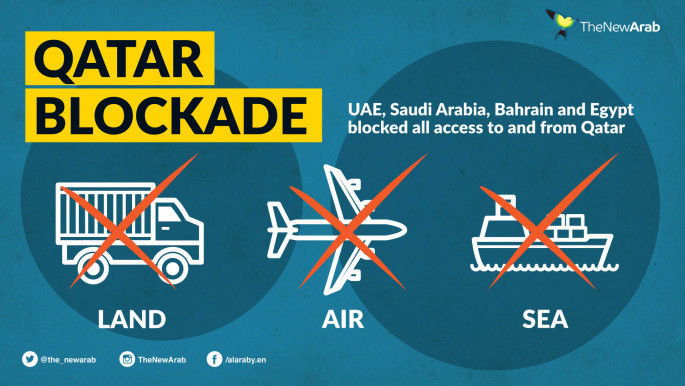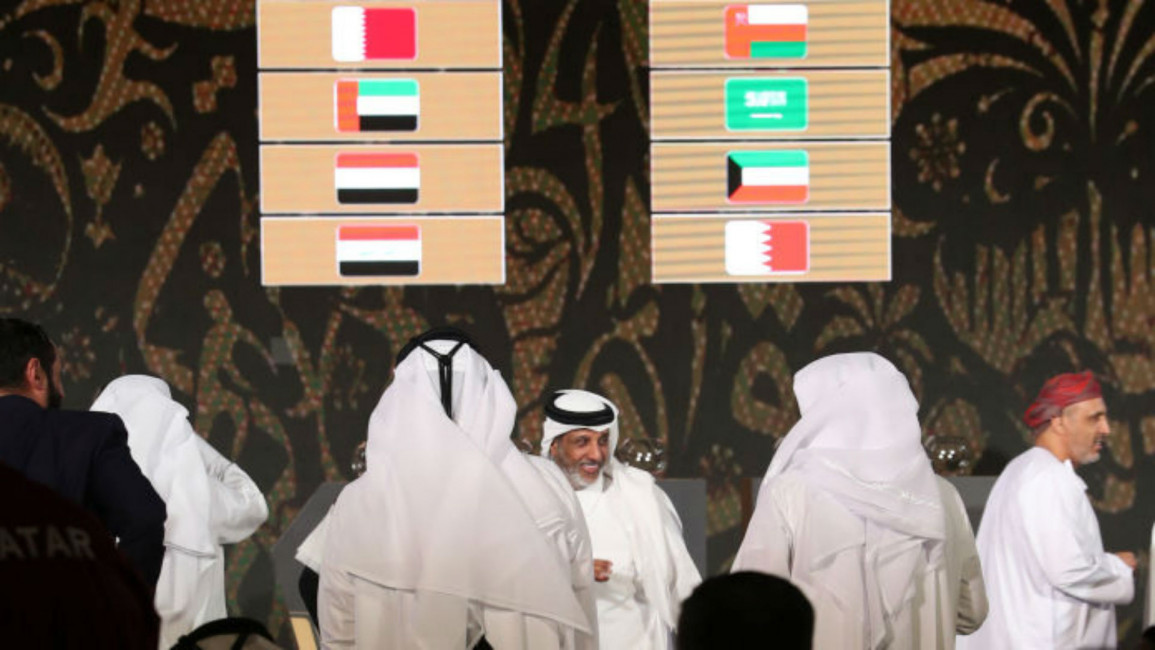Follow us on Twitter and Instagram to stay connected!
Gulf Cup kicks off in Qatar amid talk of 'football diplomacy' with Saudi-led bloc
The first game of the Gulf Cup kicks-off in Doha on Tuesday afternoon, with Saudi Arabia, the UAE and Bahrain taking part in the football tournament despite their ongoing blockade of Qatar.
Hosts Qatar play Iraq in the opening game of the tournament on Tuesday with the second Group A match between UAE and Yemen taking place later in the evening.
The Gulf Cup see the six member states of the Gulf Cooperation Council (GCC) - Qatar, Oman, Kuwait, Bahrain, Saudi Arabia and the UAE - plus Iraq and Yemen all taking part.
The biennial competition looked under threat when the UAE, Bahrain and Saudi Arabia - plus Egypt - launched a blockade on Qatar in June 2017, cutting off land, sea and air routes to the country.
It is believed that the siege of Qatar has been due to Doha's independent foreign policy and media outlets. There is also said to be lingering resentment from some Gulf states over Qatar's hosting of the 2022 World Cup.
The 2017 Gulf Cup was due to be played in Qatar but was moved to Kuwait when Saudi Arabia, the UAE and Bahrain threatened to boycott the tournament.
In what some commentators believe is a sign the embargo could be eased soon, the three Gulf states agreed to take part in this year's tournament in Qatar, effectively breaking the blockade on Doha.
The UAE team took a circuitous route to Qatar via Kuwait to avoid flying straight to Doha, but the Saudi team flew directly to Qatar.
Coverage of the Gulf Cup has been low-key in Emirati and Saudi media, while some outlets have chosen to ignore it.
 |
Analysts have dubbed the move an act of "football diplomacy" and could be a small but significant step towards diplomatic relations being re-established between the Gulf states.
Bill Law, editor of the Arab Digest, noted that while the UAE still opposes Qatar's alleged support for the Muslim Brotherhood and Saudi Arabia remains opposed to Doha-based broadcaster Al Jazeera, football could be a vehicle used to end the crisis.
"The Gulf Cup is the road chosen to start the process of bringing an end to a silly dispute that substantially wrecked the GCC, benefitted regional rival Iran and did reputational damage to the UAE and Saudi Arabia," he told The New Arab.
"Qatar has emerged relatively unscathed economically and reputationally: it is widely seen as the adult in the room in its handling of the feud."
Qatar took part in the Asian Cup in the UAE earlier this year, although its fans were effectively not allowed to enter.
Despite the hostile reception from the Emirati crowds, the team went on to win the tournament.
Still, Qatar has said it welcomes all fans to the tournament even if Saudi and Emiratis have been effectively barred from visiting Doha by their own governments.
Jassim al-Rumaihi, the secretary-general of the Arab Gulf Cup Football Federation (AGCFF), said that "the state of Qatar will make the necessary arrangements" for fans of all the countries taking part in the tournament, according to Al Jazeera.
"[The Gulf Cup] has underlined its ability to overcome the challenges and obstacles under the circumstances the region is undergoing," the AGCFF said in statement.
"The Gulf Cup remains a constant affirmation that our Gulf is one."



